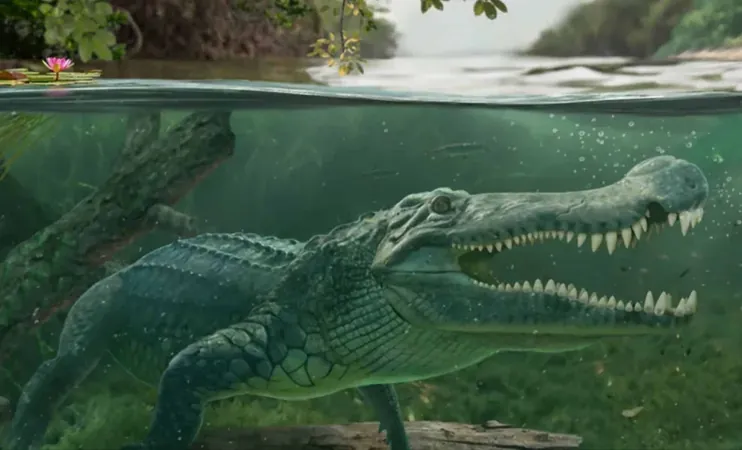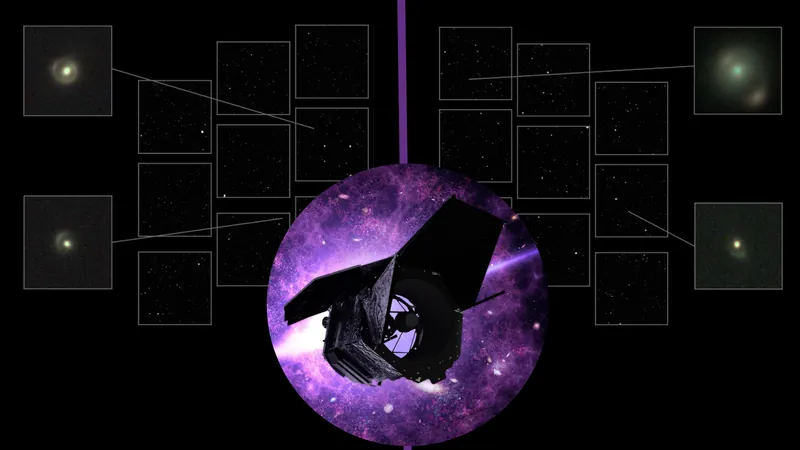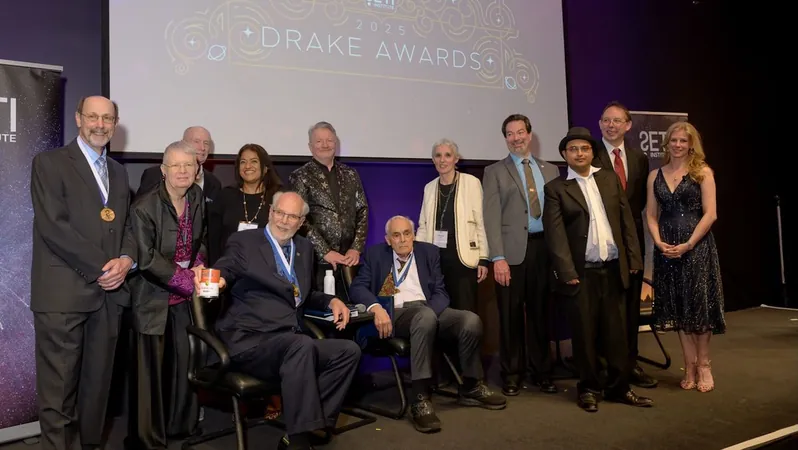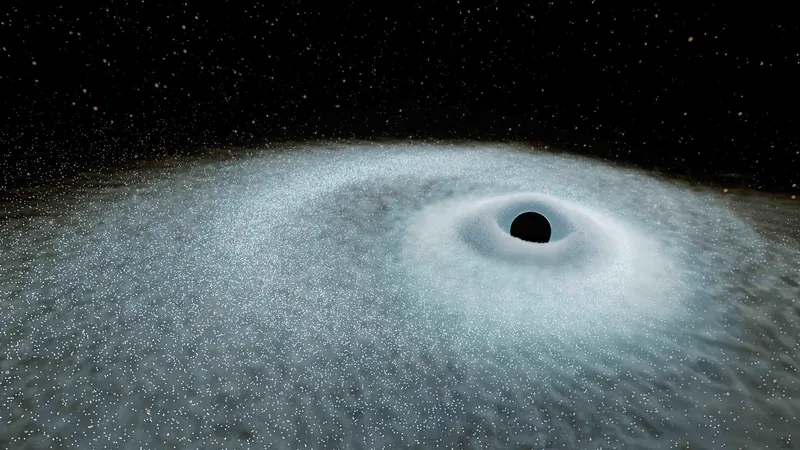
Unveiling the Terror Crocodile: Meet Deinosuchus, the Dinosaur Slayer of Ancient Waters
2025-04-24
Author: Michael
The Awakening of a Prehistoric Predator
A groundbreaking new study has brought to light astonishing revelations about the fearsome Deinosuchus, often dubbed the "terror crocodile." This massive predator roamed the waters of ancient North America between 82 to 75 million years ago, preying on unsuspecting dinosaurs and asserting its dominance as one of Earth’s most formidable creatures.
A Unique Adaptation: Saltwater Survivors
What set Deinosuchus apart from today’s crocodiles and alligators was its extraordinary ability to thrive in saltwater, allowing it to conquer a wide range of habitats. This discovery, featured in a study published in the journal *Communications Biology*, offers fresh insights into the evolution of crocodilians and how they adapted through climate changes.
The Secret of Its Success: Salt Glands
Dr. Márton Rabi, the principal investigator and lecturer at the University of Tübingen, stated, "No one was safe in these wetlands when Deinosuchus was around. We’re talking about an absolutely monstrous animal, definitely over 8 meters (26 feet) long!" With salt glands enabling it to endure both coastal marshes and rivers, Deinosuchus didn’t just survive; it thrived.
Fossil Clues Unveil a Predator's Past
The wealth of Deinosuchus fossils discovered on both sides of the Western Interior Seaway has enriched our understanding of this crocodile's lifestyle. Previously, scientists marveled at how a predator of its caliber flourished in varied environments. New molecular data and fossil analyses have illuminated its unique place in the crocodilian lineage.
Revising the Family Tree of Crocodilians
Contrary to earlier beliefs, researchers have now concluded that Deinosuchus is not closely related to modern alligators but hails from a separate branch of the crocodilian family. Dr. Rabi elaborated, "Saltwater tolerance is an ancient trait among many crocodilians, later lost in alligatoroids." This finding redefines our understanding of crocodile evolution.
The Legacy of Giant Crocodiles
Deinosuchus wasn’t a lone giant; it was part of a broader history of enormous crocodilians that adapted multiple times over 120 million years, adjusting to ever-changing global climates. According to Dr. Evon Hekkala from Fordham University, these findings highlight how ancient crocodile lineages became opportunistic during periods of drastic environmental shifts that led to the extinction of less adaptable species.









 Brasil (PT)
Brasil (PT)
 Canada (EN)
Canada (EN)
 Chile (ES)
Chile (ES)
 Česko (CS)
Česko (CS)
 대한민국 (KO)
대한민국 (KO)
 España (ES)
España (ES)
 France (FR)
France (FR)
 Hong Kong (EN)
Hong Kong (EN)
 Italia (IT)
Italia (IT)
 日本 (JA)
日本 (JA)
 Magyarország (HU)
Magyarország (HU)
 Norge (NO)
Norge (NO)
 Polska (PL)
Polska (PL)
 Schweiz (DE)
Schweiz (DE)
 Singapore (EN)
Singapore (EN)
 Sverige (SV)
Sverige (SV)
 Suomi (FI)
Suomi (FI)
 Türkiye (TR)
Türkiye (TR)
 الإمارات العربية المتحدة (AR)
الإمارات العربية المتحدة (AR)